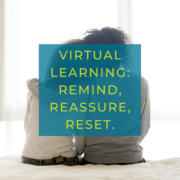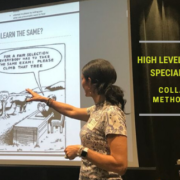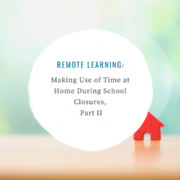High School Guidance Counselors and Advisors: Key Questions for Grads, Part I

Guidance counselors and advisors at the secondary level have their work cut out for them. Not only are they responsible for the social, emotional, and academic well-being of each child, but their position also requires a great deal of research, recommendations, and paperwork during the college admissions process. I think back to the stress of my own college search, application, and admissions process—and let me just say, I would never wish to relive that tumult. Now, think about the fact that, on top of their regular day-to-day roles in schools, guidance counselors also perform that monstrous college application process year after year for hundreds of students at a time.
With the end of the school year approaching, the nation’s high school graduates will be heading off to prove their college and career readiness in no time. Meanwhile, a whole new crop of high school juniors will be starting the college search and application process, continuing through the revolving door that is their high school’s guidance and advising office. A whole host of questions will be thrown at these young, eager students. However, what piques my interest are the many questions that aren’t typically asked—questions that, while they may be less standard, are very telling when students are in the midst of the college search.
How close is too close? There are pros and cons to looking and staying closer to home when heading off to college. Some students find a sense of comfort knowing that parents and siblings are a short drive away. Some even prefer to live at home and commute to campus for their daily classes. Not only will the comforts of home—like laundry and home–cooked meals—be provided daily, but commuters save thousands of dollars on room and board by living at home.
A drawback to this, of course, is the fact that the “true” college experience becomes sacrificed when students live at home. Dorm life, communal dining, late-night cram sessions, and weekend events are all part of living on campus, especially during freshman year. If students have the option to commute to campus, they may still prefer to forgo their childhood bedroom in favor of the independence that campus life brings. It all depends on the person, but ask them, “What is more important to you—maintaining consistency and familiarity, having family support and saving money, or independence, responsibility, putting yourself out there with new people, and the genuine ‘freshman on campus’ experience?”
What do you like to do on the weekends? This may sound like your typical, run-of-the-mill, “icebreaker” question, but the intent behind it is crucial for students who are on the fence between vastly different post-secondary schools. My own experience at Penn State proved to be defining, and perhaps, had I truly considered what my downtime in college would look like, I likely would have made a different decision. Beyond the course loads, exams, and hours spent studying, college life involves a great deal of downtime, especially for students who have masterfully planned a leisure-conducive course schedule.
With this in mind, students need to be ready to fill their time with activities other than parties and naps. In my own case, once the excitement of Penn State’s football season died down, the once bustling Happy Valley became a pretty bleak, homogeneous cow pasture (in my personal opinion). At that point, due to my own ignorance/naivete, I hadn’t really thought about what life would look like during a never-ending winter in rural Pennsylvania. Of course, campuses offer an endless amount of extracurricular options. From clubs, intramural sports, and philanthropic organizations, to mixers, academic workshops, and hobby groups—the options are limitless. Students just need to ask themselves, “What do I really like to do?” Then be sure that those interests are well-represented at the universities that they’re eyeing.









